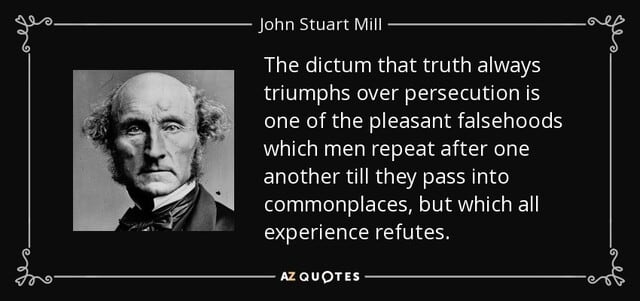abandon(əbˈændən)「【他】(計画など)を断念する、(妻子・友人など)を捨てる」※対象に対して(a-=ad-)関与を禁じ(ban)ること。夜も遅いし、もう止めた!「あぁ晩、断念見捨てるよ。」。abandoned children で「見捨てられた子どもたち」。
大勢の病人や負傷者が残された
a number of sick and wounded had been abandoned
動詞 他動詞
a
〈計画・習慣などを〉(中途で)やめる 《★give up のほうが口語的》.
|
abandon one's work 仕事を断念する. |
b
〔+目的語+for+(代)名詞〕〈…を〉やめて〔…に〕する.
〔+目的語+to+(代)名詞〕[abandon oneself で] 〔快楽・悲嘆などに〕身を任せる,ふける.
|
He abandoned himself to pleasure(s) [grief]. 彼は歓楽[悲嘆]に明け暮れた. |
名詞不可算名詞
【語源】
古期フランス語「統制の下に置かれた」の意 (à‐ ‘ad‐'+bandon ‘ban,control'); 名詞 abandonment
liege(líːdʒ)※"vassal of a feudal lord," also "a feudal sovereign, a liege-lord," probably from liege (adj.)) or from a noun use of the adjective in Old French or Anglo-French. A fully reciprocal relationship, so the adjective could apply to either party. Old French distinguished them as lige seignur "liege-lord" and home lige "liege-man."
「リー爺 領主。」
名詞可算名詞
形容詞限定用法の形容詞
opaque (oʊpéɪk)「不透明な」※「OPEC油で 不透明。」
The claim has drawn criticism from opposition lawmakers. They say relations between the office and Choi are opaque.
その主張は野党議員からの批判を引き起こしました。野党議員は、大統領府とチェ氏との関係は不透明であると言っています。
解 説
opaqueは、光などを通さないので「不透明な、どんよりとした」、転じて物事が「はっきりしない、分かりにくい」という意味です。
opaque(oʊpéɪk|əʊ‐)
形容詞
不透明な.
opaquely 副詞
opaqueness 名詞
【語源】
cajole(kədʒóʊl|‐dʒˈəʊl)「過剰ルビーで 彼女釣る。」
動詞 他動詞
a
b
|
cajole a person into consent(ing) 人をおだてて同意させる. |
c
〈人を〉甘言でつって〔あることを〕やめさせる 〔out of〕.
|
They tried to cajole their daughter out of marrying him. 両親は娘にうまいことを言って彼との結婚を思いとどまらせようとした. |
甘言を弄して〔人から〕〈ものを〉取り上げる 〈away〉〔out of,from〕.
|
He cajoled the knife (away) from the child. 彼はうまくだましてその子供からナイフを取り上げた. |
cajolement 名詞
【語源】























